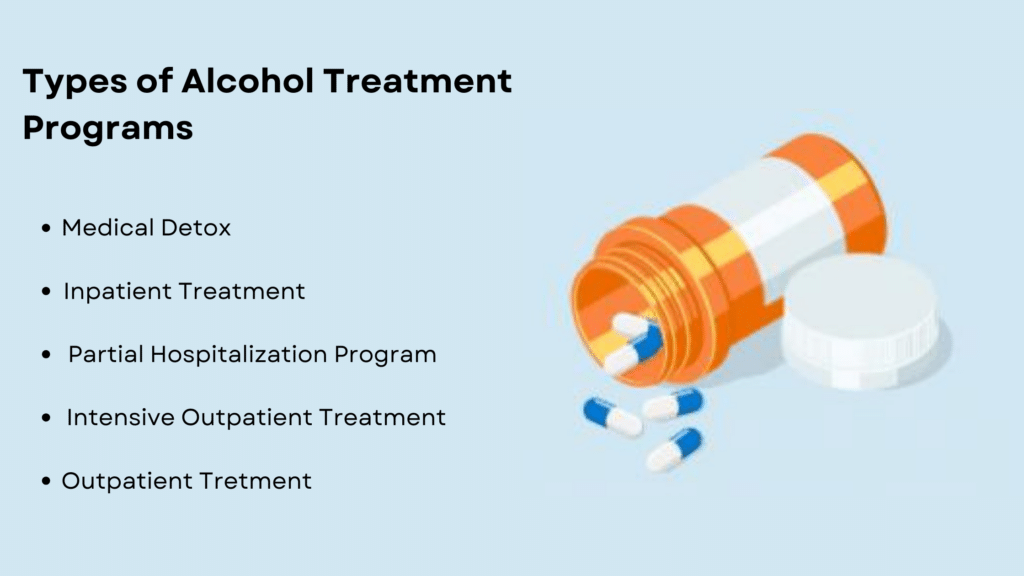An IOP rehab program may be your answer if you are struggling with addiction. IOP alcohol rehab programs in New Jersey offer a flexible and convenient way to get the treatment you need.
In New Jersey, there are many IOP alcohol rehab centers to choose from. So how do you know if a New Jersey IOP alcohol rehab center is right for you?
Relevance Recovery is an intensive outpatient program in New Jersey. Contact us today to learn more about treatment options near you.
What is IOP Alcohol Rehab?
Intensive outpatient rehab programs are designed for people who are struggling with addiction but who do not need 24/7 care.
Primarily intensive outpatient programs are used to treat the following disorders:
- Self-harm
- Eating disorders
- Depression
- Bipolar disorder
- A chemical dependency that doesn’t call for detoxification
- Transitional and relapse prevention treatment for patients just released from psychiatric care
What Does an IOP Rehab Program Entail?
Typically, a New Jersey IOP alcohol treatment includes group therapy, individual therapy, family therapy, skills training, and educational sessions.
Intensive outpatient treatment programs are typically 3-5 days per week for 3-4 per day.
At a minimum, you will be asked to commit to 9 hours of care each week at the addiction treatment center.
Usually, the total duration of care for intensive outpatient treatment at rehab facilities is 3 to 4 months.
What Happens After Your IOP Program Ends?
After completing your IOP addiction treatment, you will probably transition to a less intensive level of care, such as individual or outpatient group therapy.
Before leaving your IOP program, you will discuss aftercare relapse prevention services like 12-Step program support groups such as Alcoholics Anonymous (AA) or Narcotics Anonymous (NA).
Typically, relapse prevention services will last several months or even years after the initial care ends.
Benefits of an IOP Program
There are many benefits to IOP alcohol rehab programs in New Jersey.
1. Flexibility
IOP addiction treatment centers offer a flexible schedule, so you can still work or go to school while attending treatment.
2. Ability to Live at Home
Furthermore, an inpatient program also allows you to remain living at home while you recover from addiction.
This can be an excellent option for people who do not want to or cannot commit to inpatient treatment.
3. Affordable Cost
Typically, patients find that addiction services at an IOP rehab facility are more affordable than inpatient treatment.
What Are the Signs of Alcohol Abuse?
There are many signs of alcohol abuse. Some of the most common symptoms marking alcohol abuse include the following:
- Drinking more than you intended to
- Drinking alone or in secret
- Missing work or school due to drinking
- Having legal problems because of drinking
- Struggling to stop or cut down on drinking
The cost of IOP alcohol rehab programs and insurance coverage
When searching for an IOP alcohol rehab program in New Jersey, it’s essential to consider several factors to ensure you find the right fit for your needs. Here are some key considerations:
1. Accreditation and credentials: Look for programs that are accredited by reputable organizations, such as the Joint Commission or the Commission on Accreditation of Rehabilitation Facilities (CARF). Additionally, ensure that the program’s staff, including therapists and counselors, are licensed and experienced in treating alcohol addiction.
2. Treatment approach: Different IOPs may employ different treatment approaches and modalities. Research and explore programs that align with your preferences, such as cognitive-behavioral therapy (CBT), dialectical behavior therapy (DBT), or holistic approaches.
3. Comprehensive care: Ensure that the IOP offers a comprehensive range of services, including individual therapy, group therapy, family therapy, and support groups. A well-rounded approach to treatment increases the likelihood of successful recovery.
4. Location and accessibility: Consider the location of the IOP and its proximity to your home or workplace. Additionally, take into account the program’s schedule and whether it can accommodate your availability.
5. Insurance coverage: Check with your insurance provider to understand the extent of coverage for IOP alcohol rehab programs. Many insurance plans offer partial or full coverage for addiction treatment, but it’s important to clarify the details before making a decision.
6. Reviews and testimonials: Read reviews and testimonials from individuals who have completed the IOP program you’re considering. Their experiences can provide valuable insights into the program’s effectiveness and the level of care provided.
By carefully considering these factors, you can make an informed decision and find an IOP alcohol rehab program in New Jersey that meets your specific needs and goals.

Are There IOP Alcohol Rehab Programs in New Jersey?
If you struggle with any of these signs of alcohol abuse, an IOP substance abuse treatment program may be right for you.
In New Jersey, there are many IOP alcohol rehab centers to choose from.
How IOP alcohol rehab programs in New Jersey differ from other treatment options?
IOP alcohol rehab programs in New Jersey typically consist of several core components that work together to provide comprehensive care. While the specific structure may vary from program to program, here are some common elements you can expect to find:
1. Individual therapy: In individual therapy sessions, individuals work one-on-one with a licensed therapist to address their specific needs and goals. This allows for personalized attention and the opportunity to delve deeper into underlying issues that may be contributing to addiction.
2. Group therapy: Group therapy sessions bring together individuals who are in the same stage of recovery. Led by a therapist, these sessions provide a safe space for individuals to share their experiences, offer support, and learn from others.
3. Family therapy: Family therapy is an integral part of many IOP alcohol rehab programs. It involves the participation of family members and loved ones to address family dynamics, improve communication, and rebuild relationships.
4. Education and skill-building: IOPs often include educational sessions and skill-building workshops to equip individuals with the knowledge and tools necessary for long-term recovery. These sessions may cover topics such as relapse prevention, stress management, and healthy coping strategies.
5. Support groups: Support groups, such as Alcoholics Anonymous (AA) or SMART Recovery, are a vital component of IOPs. These groups provide ongoing support and a sense of community, even after the formal IOP program has ended.
Overall, the structure of an IOP alcohol rehab program is designed to provide a comprehensive and holistic approach to treatment. By addressing the physical, emotional, and social aspects of addiction, individuals have a better chance of achieving lasting recovery.
Finding an IOP Rehab Center Near You
Choosing the right IOP alcohol rehab center is essential.
Make sure to research and find a reputable IOP alcohol rehab center with experience treating people with addiction.
So how do you know if an IOP rehab program is right for you?
1. Ask Your Primary Care Provider
Begin by seeking a referral from your primary care provider. Your primary care provider can help you find an IOP alcohol rehab center that is right for you.
2. Get a Free Assessment
Most IOP alcohol rehab centers offer free assessments. This is a great way to learn more about IOP rehab programs and determine if an IOP program is right for you.
3. Talk to a Treatment Specialist
If you are still unsure if IOP alcohol rehab is right for you, talking to a treatment specialist can help.
Treatment specialists can answer your questions and help you find the right IOP alcohol rehab program for your needs.
Relevance is a New Jersey IOP Alcohol Rehab Center
Relevance Recovery is a top-rated drug and alcohol rehab center in Monmouth County.
Our main priority at Relevance Recovery is your sobriety. We understand that alcohol addiction is a disease, and we are here to help you through your recovery journey.
Our IOP alcohol rehab program offers multiple pathways to help you overcome addiction and get on the path to a sober life.To learn more about our New Jersey IOP alcohol treatment program, contact us today! We are here to help you through every step of your recovery journey.




